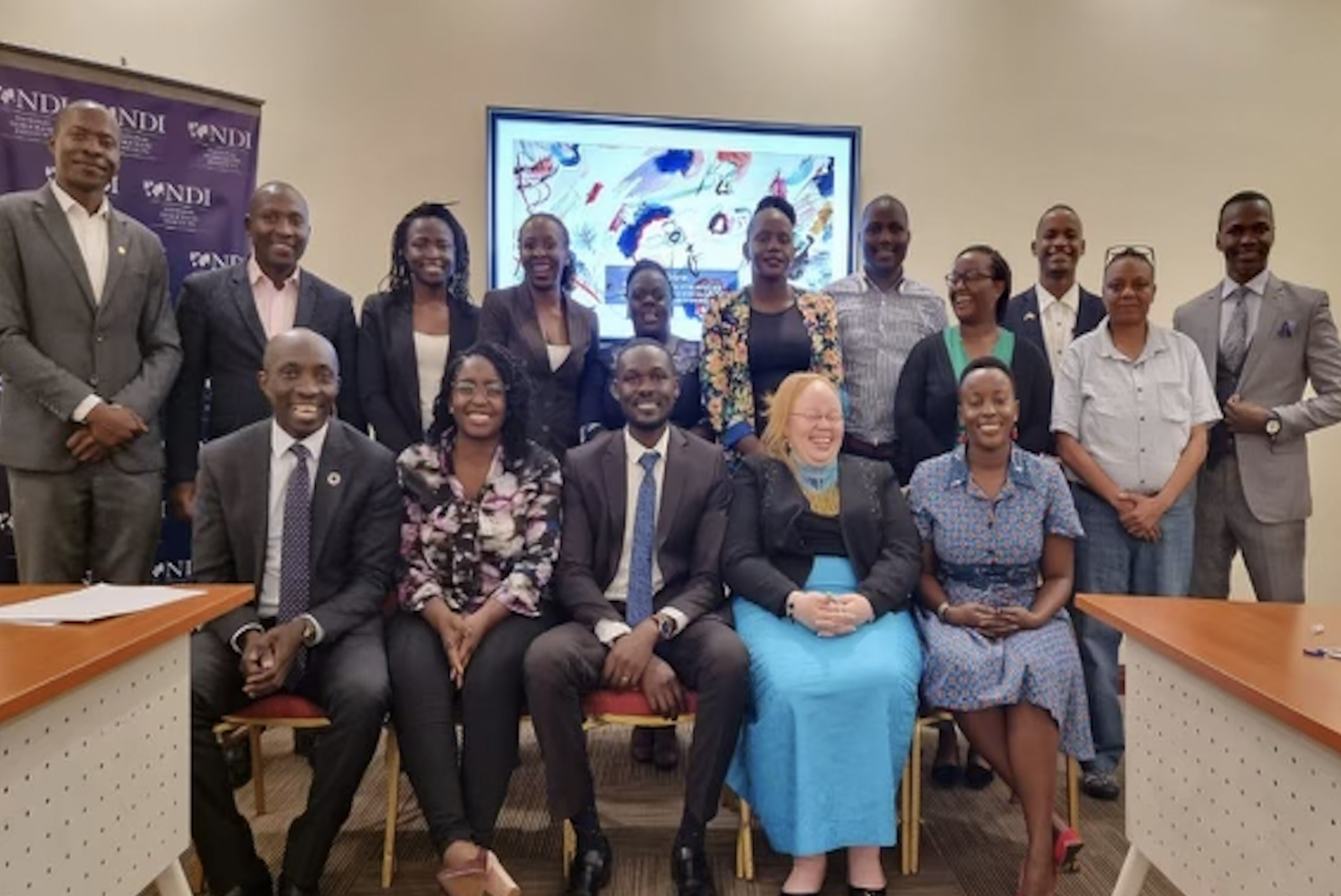
SHARE
Today, more than one-third of Africa’s population is aged between 15 and 35. Ordinarily a cheering picture of a promising future for the continent, but evidence shows this demographic advantage remains to be seen in political inclusion, particularly inclusion and visibility of young people in internal political party processes. There is more evidence that young people tend to vote less frequently, stand as candidates less often and remain underrepresented in electoral functions and political party processes in the continent. In 2020, with funding from the National Endowment for Democracy, NDI launched the Political Party Leadership Institute (PPLI) as a regional peer-learning platform to enhance the participation of young people in democratic politics and political party processes in the Southern and East Africa (SEA) region. The program aims to build youth participation in party processes and leadership by increasing their visibility, voice and influence within their parties. Since its first iteration, the program has trained over 30 young male and 31 young female party members from ruling and opposition parties from Botswana, Kenya, Malawi and Zambia, helping to create a pool of new emerging young political leaders on the continent.
In January 2022, SEA welcomed 33 youth party members from Kenya and Zambia to the second iteration of the PPLI. NDI functional experts and external trainers engaged the cohort in virtual coaching sessions, tailored mentoring support and in-person country level engagements on topics including public speaking, power and stakeholder mapping, message development, storytelling, and personal and public branding to enhance their voice and visibility.
Moses Gichuho, a member of the United Green Movement in Kenya, explained how the consensus building training was one of his most useful coaching sessions. He stated, “This session etched in me the simple truth that consensus building has to be founded on good faith in order to create a sense of cohesiveness and a collaborative spirit among interested stakeholders, helping avert unnecessary conflict, resulting in a win-win situation and for better quality outcomes. One of the statements that has stuck from that session is: negotiation is not about beating the other party, but about achieving a mutually beneficial agreement”.
Additionally, Moses addressed how the program has helped him in his career and projects outside of the program. He explained that PPLI has been beneficial in helping him in his role as the Executive Director of the Center for Leadership, Ethics and Governance, an NGO he founded with the aim of equipping and inspiring the next generation of leaders. He stated, “The opportunity allowed me to meet a host of change makers drawn from both Kenya and Zambia, some of whom we have commenced partnering in areas of synergy.” Due to his engagement in PPLI, Moses has also participated in other opportunities, such as being a delegate speaker at the One Young World Summit in Manchester, England and being chosen to attend the World Bank Youth Summit in Washington DC.
Participants, with PPLI faculty coaching and party members’ mentoring, designed and delivered on self-initiated projects in five thematic areas covering: economic development and entrepreneurship, climate change and environmental governance, the inclusion of marginalized groups, service delivery, and peacebuilding.
Kipngeno Rono from Kenya designed a project in his community on de-risking smallholder farmers and empowering them with information for ease of access to quality and affordable means of agricultural production and practices. He explained that Kenya has been dealing with food insecurity and hunger in 34 counties out of 47. In one of the coaching sessions, Kipngeno stated that “It is important to think of a way where we can bring all the stakeholders together to boost productivity for the farmers. When we inspire the farmers, there will be enough food for the country.” Kipngeno's motivation for this project stems from his political party, United Green Movement, being active in trying to reach out to counties to allocate funding for agriculture. He also plans to continue working on this project beyond PPLI and turn it into a company, which is already registered under the name “Big Dream Connections.”
Ruth Kangwa, an independent candidate during Zambia’s 2021 elections and a member of Zambia’s Youth4Parliament Movement, applied lessons learned from participating in the PPLI to her “Girls Gone Political” initiative, which pushes for the increase and participation of young women in politics. Ruth has researched representation figures of women in local government and national assembly and finds that they are standing at 8% and 14.7%, respectively with only one female youth representative currently in Parliament. She stated, “Applying knowledge gained from training on power mapping, now I go to meetings knowing that not everyone will buy into my ideas. I have learned to take a diplomatic approach because I know I need this person and that I can bring them along without a protest.” Though she did not win at the polls, she plans to run again in future elections and apply acquired skills into her advocacy work for women and girls as she engages the government and advocates for legislative reform.
From December 13-15, 2022, eight PPLI presenters from Kenya and Zambia, whose projects were selected by a judging panel, will participate in a regional symposium in Nairobi, Kenya, where they will be joined by youth selected from the NDI country office political party strengthening programs in Malawi and Mozambique. The PPLI culminating event is an opportunity for the participants to present their final projects and initiatives to political and government stakeholders to demonstrate how young people are participating in politics and party processes.
NDI’s engagement with PPLI is implemented with the support from the National Endowment for Democracy (NED) program.
Author: Jade Muyambo, Project Assistant, Southern and East Africa
###
NDI is a non-profit, non-partisan, non-governmental organization that works in partnership around the world to strengthen and safeguard democratic institutions, processes, norms and values to secure a better quality of life for all. NDI envisions a world where democracy and freedom prevail, with dignity for all.



